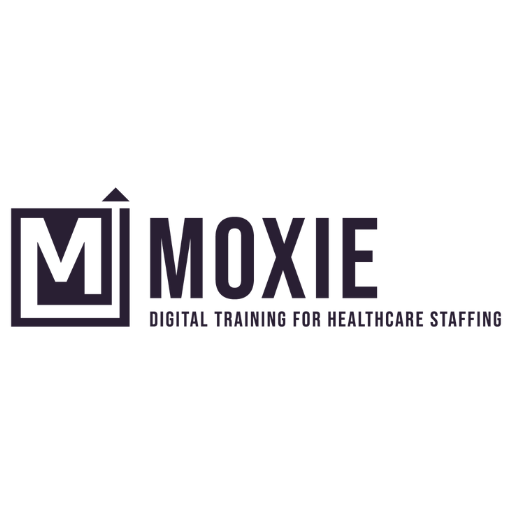By: Charity Crawford
It was something I’d seen time and time again with my colleagues.
Someone would grow their desk (aka number of working travelers) rapidly, get a bunch of accolades for it, earn a decent commission check for the first time in a long time (or ever), and sail into the rainbows on Cloud Nine for a couple months. Cue the song “Walking On Sunshine” by Katrina and the Waves. (and don’t it feel GOOD!)
Three months later, they’re right back where they started, scrambling to get placements, struggling to meet their goals for the month, managers breathing down their necks. What the heck happened to Cloud Nine?!
In a majority of these cases, what happened was the recruiter didn’t adjust his or her time management and organizational strategies to account for the sudden (or even long-term, gradual) growth.
In my experience, you could be freakin’ amazing at sales and win over travelers’ hearts left and right, but unless you make your day-to-day operational process a well-oiled machine, you’re not going to keep up with the growing demands and responsibilities of having a larger desk. You won’t be able to maintain your growth, and you’ll keep hitting plateaus and ceilings that you just can’t seem to get through.
Here is what often happens when this roller-coaster effect occurs:
1. Recruiters stop making time for prospecting. They may get complacent with the number of travelers they have, or they simply get overwhelmed with increased workload, and prospecting is the first thing to be cut from their daily duties.
2. Recruiters don’t adjust their organizational methods to account for increased workloads. They rely on the same methods (often manual, paper-based methods) to keep track of their travelers and tasks which end up bogging them down instead of saving them time. Sometimes, they use a manual process *on top of* using a CRM-based or electronic process, thereby replicating their work!
3. They start reacting to everything. Instead of scheduling dedicated time to accomplishing daily tasks, they spend their time responding – to emails, voicemails, questions from teammates, expiring paperwork, missing timesheets, etc. By the end of the day, they haven’t really accomplished anything. They might feel like they have been “busy” but they aren’t actually productive.
Is any of this resonating with you? If so, it’s time for you to take a good, hard look at your day, and begin identifying ways to “trim the fat” to make sure you’re setting yourself up for long-term growth. Here are some strategies that I recommend:
1. Block out your schedule. Take the time to write out a schedule that you’ll follow for one week straight, then identify any “weak spots” or areas that you want to allot more/less time, and adjust it for the next week. Make certain you are blocking out time specifically for new business recruiting/prospecting! Personally, I had to make sure to block out that time in the morning, otherwise I wasn’t very confident that I’d get it done. Getting my prospecting calls done first thing did wonders for my productivity and KPIs. Make the blocked time non-negotiable (unless an emergency or urgent situation comes up) and eliminate your distractions during this time. I’m looking at you, cell phone.
2. Rely on your CRM as much as possible for organizing your candidates and follow-up tasks. If you aren’t very comfortable with your CRM, or aren’t sure that you’re using the CRM to its full potential, arrange a time to meet with a couple of your internal CRM experts to do some refresher training and pick up on some tips and tricks.
3. Make sure your organizational strategies are working FOR you, not against you. This is a classic “work smarter, not harder” point. If you are spending a good chunk of your day writing sticky notes, updating spreadsheets, printing and writing out documents for files, then chances are, your process isn’t going to work in the long haul. What worked for you when you were running 10 travelers is likely not going to work for you when you’re running 20 travelers. Constantly re-evaluate your methods and figure out where you can cut out duplicate work, and manual/paper-based work.
4. Keep a to-do list. This is one piece of paper that I would actually encourage you to have on your desk. At Moxie, we recommend the Four Square Method which has you breaking up a piece of paper into four sections, labeled Profiles, Submittals, Working, and To-Do. (If you’d like a copy of the Four Square Method template with instructions, send us an email and we’ll give you a free copy that you can print off or save in your files.)
5. Stop reacting! With your blocked schedule, you should be allotting time to checking emails and voicemails throughout the day. Very rarely is a call/email/text something that you have to return or respond to right that second. Most can wait an hour (or longer). Finish your task at hand. If you are someone within your team/company who is considered a leader or expert and you have a lot of people coming to your desk to ask questions, work with your manager to figure out blocks of time specifically dedicated to question-asking, and get your manager to announce it and buy into it. Your first responsibility is to your travelers and building your business.
6. Proactively take the time to educate your travelers on what they need to do. I’d much rather spend a full hour educating a traveler on how to fill out a timesheet and how to make sure they get paid correctly before they start a contract versus take the time chasing them down every week because you haven’t gotten the timesheet or it wasn’t filled out correctly, or there was a discrepancy, etc. Time is precious! Use it wisely!
What do you think of these recommendations? What others would you add to this list?





